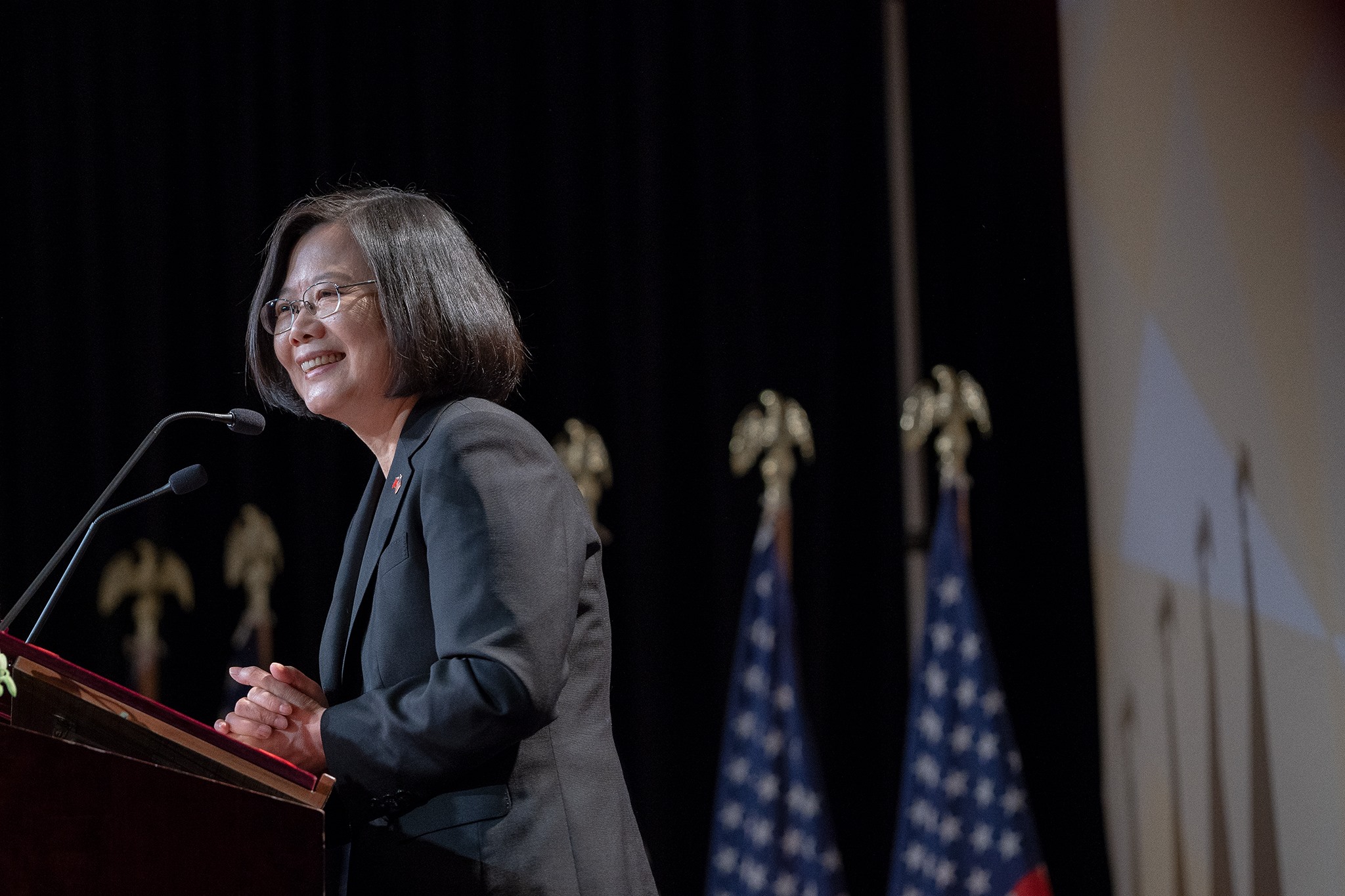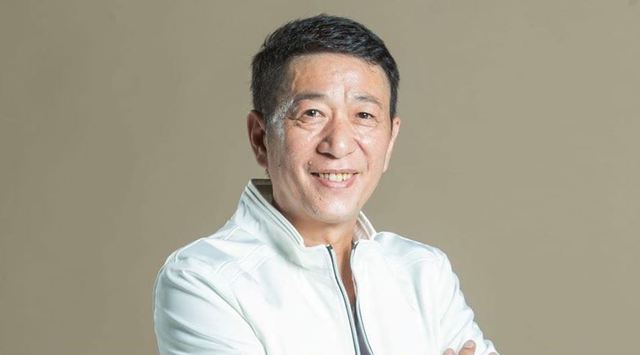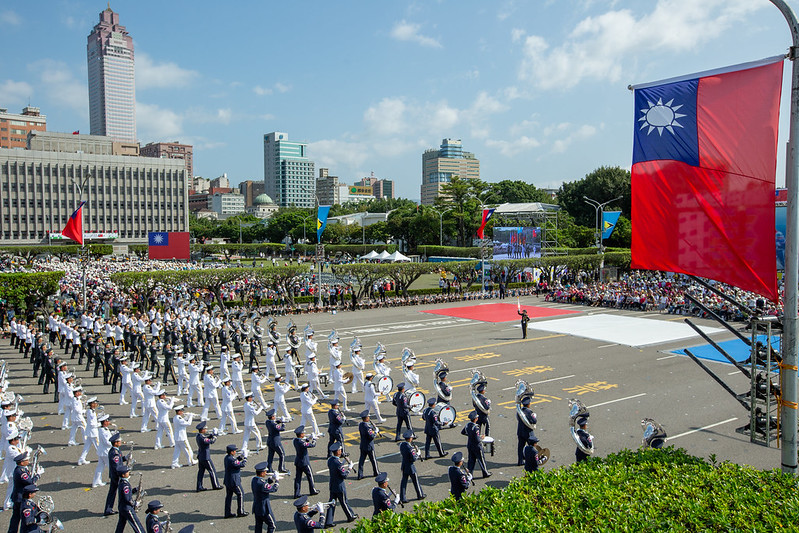Future opportunities for Indo-Taiwanese collaboration lie in the spheres of trade and security.
India and Taiwan are both Asian democracies attempting to resolve complex social and ethnic problems peacefully. Both are also faced with aggressive Chinese security policies aimed at establishing a regional hegemony. Although, barring a shift in China’s position on Taiwan and a resolution to Sino-Indian border disputes, India is unlikely to diplomatically recognize Taiwan, unofficial Indo-Taiwanese relations could serve the long-term political and economic interests of both countries.
Enhancing Taiwan-India relations is consistent with the goals of both parties. President Tsai Ing-wen’s administration has been seeking to deepen relations with South and Southeast Asia, a policy not dissimilar to that proposed by the Lee Teng-hui and Chen Shui-bian administrations, with India potentially emerging as the preferred alternative for Taiwanese investors over China. Such goals complement India’s “Look East Policy,” begun by late Prime Minister P.V. Narasimha Rao in 1991, continued by three successive Prime Ministers across party lines, and enhanced by Prime Minister Narendra Modi’s “Act East” policy.
In 1995, the India-Taipei Association’s office was established in Taiwan and the Taipei Economic and Cultural Center (TECC) was opened in New Delhi; a second was opened in Chennai (formerly Madras) in 2012. As an important aside, the New Delhi TECC also serves Nepal, Bhutan and Bangladesh, while its Chennai counterpart serves Sri Lanka and Maldives.
Prime Minister Narendra Modi envisions broadening ties with Taiwan. He visited Taiwan in 1999 as General Secretary of the Bharatiya Janata Party (BJP) and established economic ties during his tenure as the Chief Minister of Gujarat, when he hosted an 80 member business delegation headed by then Economic Planning Minister Dr. Christina Y. Liu in 2011, and agreed to setting up a Taiwanese industrial park near Gujarat’s capital, Ahmedabad. Prime Minister Modi has also expressed interest in a Free Trade Agreement with Taiwan.
Currently, several Taiwanese companies are projected to invest in Gujarat and all over India: Maxx Tyres, with US$2.72 billion in Gujarat; and Foxconn, with US$20 billion, in Maharashtra, Karnataka, Tamil Nadu, and Gujarat. Indo-Taiwanese agreements now extend from agriculture and heritage railways to opportunities for Indian guest workers in Taiwan. Former foreign minister Tien Hung-mao visited Delhi in March 2016 for the Raisina Dialogue on increasing cooperation among Asian countries, hosted by the Observer Research Foundation and the Ministry of External Affairs.
Despite a convergence of interests, growing connections have been slow. Due to the Ma Ying-jeou administration’s focus on enhancing ties with China, aggregate India-Taiwanese trade declined through 2014 and 2015. Moreover, although roughly 70 Taiwanese businesses operate in India, Taiwanese investors continue to struggle with little understanding of the Indian environment, specifically in terms of excessive bureaucratic intervention in foreign trade and underdeveloped infrastructure. Under pressure from domestic manufacturing associations, India has imposed tariffs on Taiwanese products like USB Flash Drives and injection molding machines. Despite not imposing tariffs on solar cells, India continues to face pressure from domestic producers.
although roughly 70 Taiwanese businesses operate in India, Taiwanese investors continue to struggle with little understanding of the Indian environment, specifically in terms of excessive bureaucratic intervention in foreign trade and underdeveloped infrastructure.
Thus, Indo-Taiwanese ties would also need to move beyond simply economic links centered on India’s expertise in software and Taiwan’s expertise in hardware. The Foundation for International Cooperation in Higher Education of Taiwan (FICHET) and the Association of Indian University signed a Memorandum of Understanding (MoU) in 2010, to mutually recognize academic degrees and certificates. An MoU was also signed in 2012 between Academia Sinica and the Indian National Science Academy to facilitate research collaboration in agro-tech, energy, healthcare, computing, and bio-technology, geological sciences, and other fields. In 2014, the first student India-Taiwan conference was held in New Delhi on Sino-Indian relations. To enhance people-to-people connections, India has agreed to grant Taiwanese nationals e-tourist visas and Taiwan has reciprocated by granting visa-free entries to Indians with valid visas or permanent residency permits in the U.S., U.K., Canada, Japan, Australia, New Zealand, and Schengen countries.
Future opportunities for Indo-Taiwanese collaboration lie in the spheres of trade and security. Regarding trade, the India-Taiwan Free Trade Agreement, whose feasibility has been studied, but which has been blocked by India, will benefit both countries economically. In terms of security, recent Chinese policy toward the South China Sea and the Indian Ocean, as well its behavior toward regional organizations like ASEAN, has revealed its hegemonic ambitions toward its Asian neighbors. Thus, although India may not ally militarily with it, Taiwan may find India as a reliable balancer to China. To this end, India can discover positive synergies with Taiwan through exchanges and collaboration between the two countries’ strategic communities, via Taiwan’s National Defense University, and by deepening language training for Indians at the Taiwan Education Centers in Indian universities.
You might also like
More from Taiwan Politics
President Tsai’s Second Term and Cross-Strait Relations: What to Watch Out For
The next four years will be marked by uncertainty over China’s trajectory and the state of the world in the …
Candidate Claims ‘Nobody Loves Taiwan More Than Xi Jinping’
Family business connections in the Pingtan free-trade zone and a son’s involvement with the CPPCC are raising questions about possible …
Above All, The Legitimacy of Taiwan’s Democracy
Since democratization, the main political parties in Taiwan have agreed to rules of the game which have served to legitimize …









